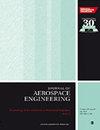Trajectory optimization for collaborative recovery of parafoil systems using unmanned vessel
IF 1.1
4区 工程技术
Q3 ENGINEERING, AEROSPACE
Proceedings of the Institution of Mechanical Engineers Part G-Journal of Aerospace Engineering
Pub Date : 2023-11-06
DOI:10.1177/09544100231212647
引用次数: 0
Abstract
Traditional trajectory optimization methods for the parafoil system set fixed-point landing as the objective. However, in recent payload fairing recovery missions, the recovery system comprising two parafoils is collaboratively recovered by a mobile vehicle, posing new challenges to the current trajectory optimization technique. In order to recover two parafoil systems autonomously with an unmanned surface vessel, this paper presents a trajectory optimization framework composed of three following component processes consecutively. Firstly, a feasibility judgment algorithm based on reachable boundary estimation is designed to determine the possibility of recovering two parafoil systems. Secondly, the decoupled-then-simultaneous strategy is proposed to enhance the convergence of solving the collaborative recovery problem. Thirdly, the finite-element collocation approach is utilized to convert the formulated trajectory optimization problems into nonlinear programming (NLP) problems, which are solved by a highly efficient NLP solver. Simulation results show that the proposed trajectory optimization framework can efficiently generate the optimal trajectory for recovering two parafoil systems with a vessel.无人艇翼伞系统协同回收的轨迹优化
传统的翼伞系统轨迹优化方法以定点着陆为目标。然而,在最近的有效载荷整流罩回收任务中,由两个伞翼组成的回收系统由移动飞行器协同回收,这对现有的轨迹优化技术提出了新的挑战。为实现水面无人艇两副伞翼系统的自主回收,提出了一种由以下三个组成过程组成的轨迹优化框架。首先,设计了一种基于可达边界估计的可行性判断算法,确定两个伞翼系统恢复的可能性;其次,提出了先解耦后同步策略,增强了协同恢复问题的收敛性;第三,利用有限元配置方法将公式化的轨迹优化问题转化为非线性规划(NLP)问题,并用高效的NLP求解器求解。仿真结果表明,所提出的轨迹优化框架能够有效地生成带船的两副翼回收系统的最优轨迹。
本文章由计算机程序翻译,如有差异,请以英文原文为准。
求助全文
约1分钟内获得全文
求助全文
来源期刊

CiteScore
2.40
自引率
18.20%
发文量
212
审稿时长
5.7 months
期刊介绍:
The Journal of Aerospace Engineering is dedicated to the publication of high quality research in all branches of applied sciences and technology dealing with aircraft and spacecraft, and their support systems. "Our authorship is truly international and all efforts are made to ensure that each paper is presented in the best possible way and reaches a wide audience.
"The Editorial Board is composed of recognized experts representing the technical communities of fifteen countries. The Board Members work in close cooperation with the editors, reviewers, and authors to achieve a consistent standard of well written and presented papers."Professor Rodrigo Martinez-Val, Universidad Politécnica de Madrid, Spain
This journal is a member of the Committee on Publication Ethics (COPE).
 求助内容:
求助内容: 应助结果提醒方式:
应助结果提醒方式:


